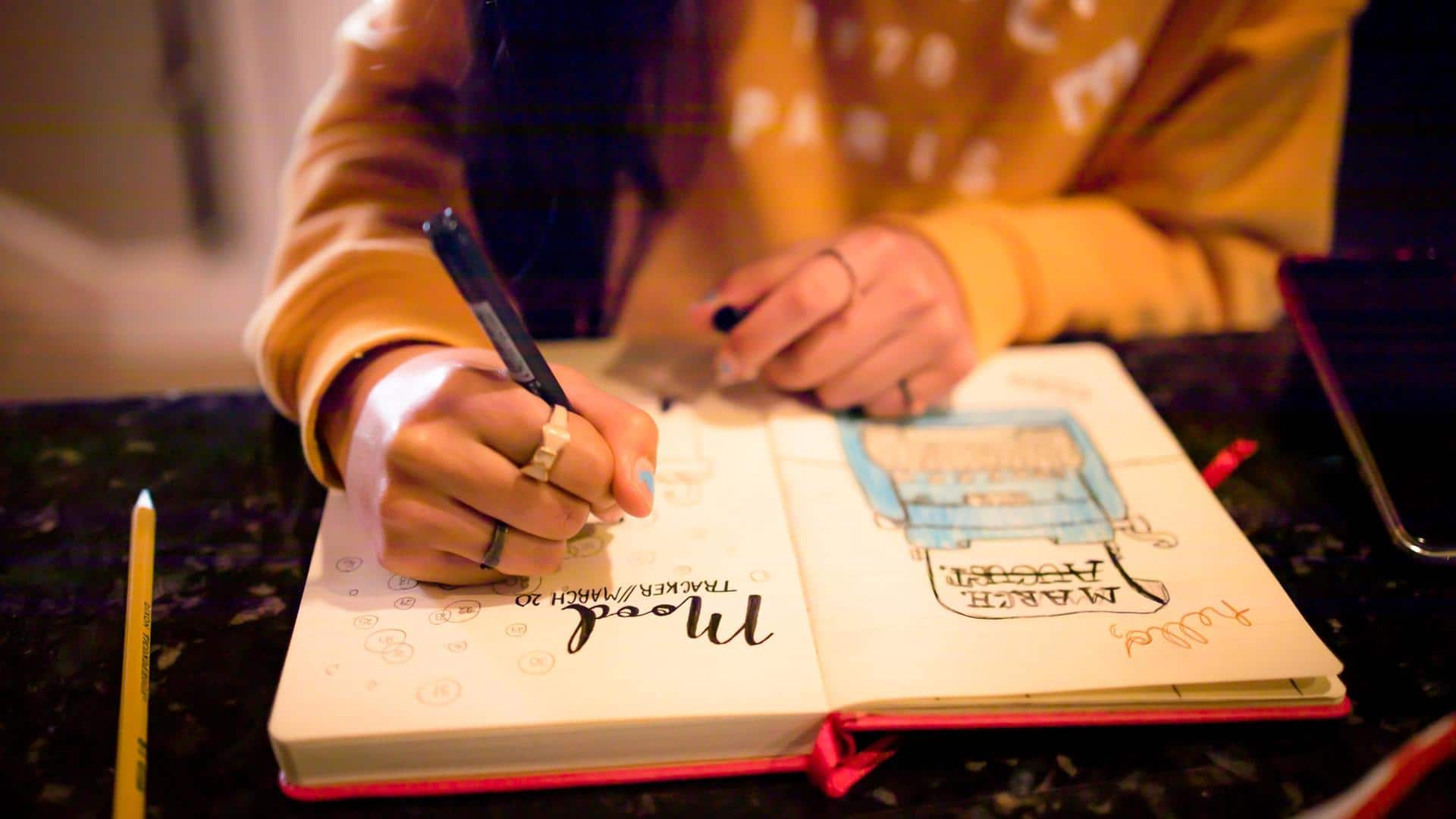
Journaling is cathartic. Here's why you should do it daily
What's the story
Remember your school days when you used to pour your heart out into a notebook? Let's bring back that time! Journaling is about expressing your thoughts, feelings, fears, struggles, and experiences by writing them down, without being judged or facing rejection by anyone. It is a great lifestyle practice for its many mental and physical benefits. Here are five of them.
Mental health
Reduces stress and anxiety
By journaling, you can work through your stress and anxiety by writing down your triggers and responses. It helps you empty your burden on a piece of paper, helping you gain firm control over your feelings. Additionally, it helps you identify stress and anxiety-inducing situations so that when they show up the next time, you have a coping mechanism written in place.
Expression
Helps you express yourself
There are so many instances in one's life where they feel that their family or friends don't understand their situation and emotions. That's when journaling comes to your rescue! Writing down your struggles and feelings can help you communicate and express yourself without being misunderstood. It can also save you the time that you may spend on someone explaining yourself.
Good night
Promotes better sleep
Journaling right before you hit the sack has shown excellent results when it comes to sleeping. A study revealed that people who write to-do lists and indulge in journaling before bedtime sleep faster than those who don't. This is because journaling helps the former population to get rid of the worries about the next day and plan against the uncertainties they could pose.
Stay present
Fosters mindfulness
When you journal, your mind sticks to the present moment and makes you aware of your current surroundings. This helps you practice mindfulness, which is a great activity to stay positive. It also breaks the constant cycle of brooding over the past and worrying about the future. In fact, it also helps you appreciate the present and focus on attaining the best from it.
Solutions
Helps you solve problems
Journaling can present you with multiple solutions at hand, especially when you don't see any hope. It shifts your mind from concentrating on the problem to finding the best possible solutions that can help you out. As you feel light after expressing your problem, you may automatically feel the urge to plan out ways to propel forward and tackle the situation more objectively.